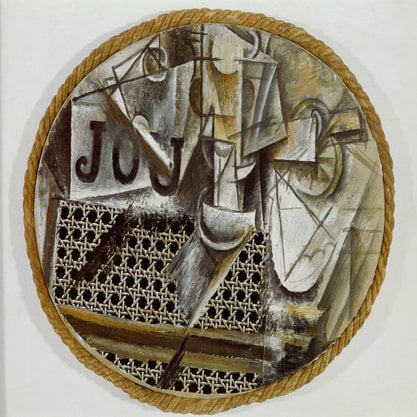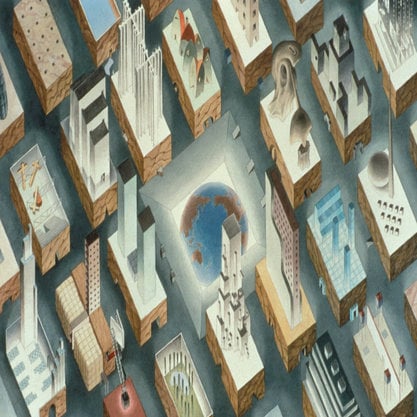Article
Cubo-Futurism By Parton, Anthony
Article
Cubo-Futurism (Kubo-Futurizm) was a term used by the early 20th-century Russian avant-garde to describe literary and artistic works that represented a fusion of Cubist and Futurist styles and principles. The term surfaced in 1912, at a point when the Russian avant-garde were exposed simultaneously to Analytical Cubism and Italian Futurism. At this stage in their development, young Russian poets and painters were beginning to move away from forms of Expressionism and to explore more innovative approaches. Cubism and Futurism offered the ideological and practical means to engage with abstraction and, ultimately, non-objectivity, in a serious and distinctive manner. By 1915, however, Cubism and Futurism had exhausted their usefulness for these poets and painters, who had now passed into completely new territory in the form of Velimir Khlebnikov’s and Aleksei Krucheynykh’s zaum (transrational) poetry, Kazimir Malevich’s Suprematism and, subsequently, Vladimir Tatlin’s and Aleksandr Rodchenko’s Constructivism. A distinctive movement of the pre-war period, Cubo-Futurism possessed an episodic character and manifested as a transitional phase in the history of Russian avant-garde art and literature in the early 20th century. It was a bridge by which the Russians approached their radical non-objective conclusions of the 1920s.





